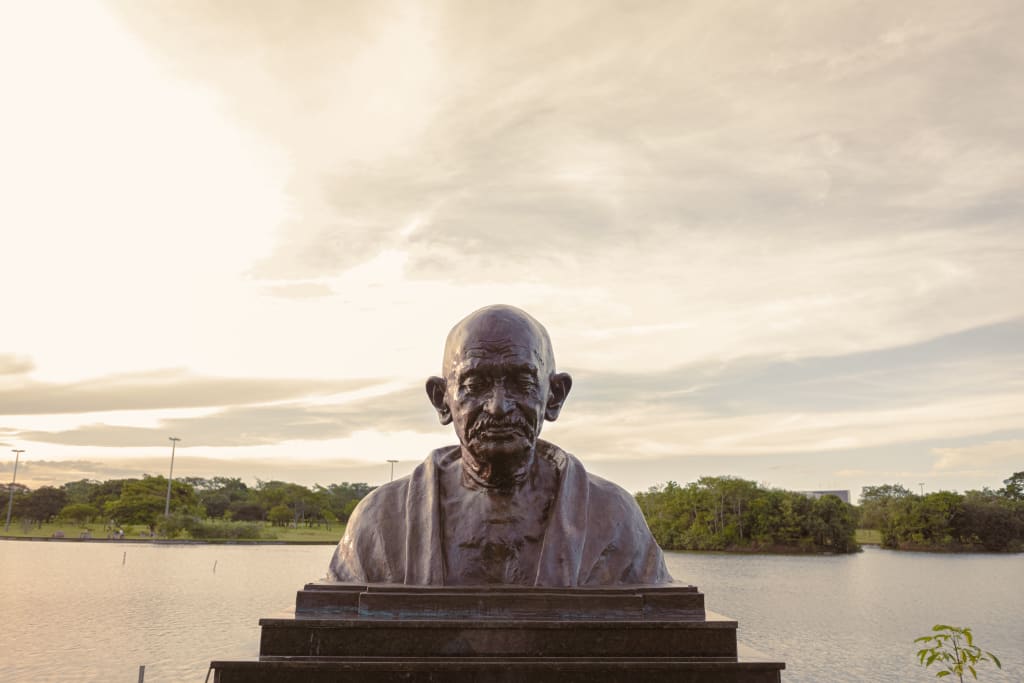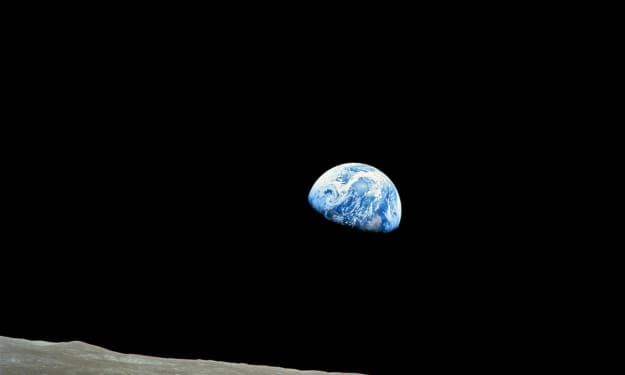Mahatma Gandhi: The Father of India's Independence
: A Story of Nonviolent Resistance and Legacy of Peace

writing...Once upon a time, in the early 20th century, there was a man who would come to be known as the Father of the Nation, Mahatma Gandhi. Born on October 2nd, 1869, in Porbandar, India, Gandhi grew up in a religious household and was deeply influenced by his mother's devotion to Hinduism. At the age of 19, Gandhi moved to England to study law, where he became aware of the injustices of the British Empire.
Gandhi returned to India in 1915, and over the next three decades, he would become the most prominent figure in India's struggle for independence from British rule. He adopted a unique approach to protest, which he called Satyagraha or nonviolent resistance, and it became the cornerstone of his political philosophy. Gandhi's belief was that violence begets violence, and the only way to defeat the oppressor was through peaceful, nonviolent means.
In 1919, the British government passed the Rowlatt Act, which allowed for the detention of Indians without trial. Gandhi saw this as an attack on the civil liberties of his fellow citizens and called for a nationwide strike. What began as a peaceful protest soon turned violent, with police firing on unarmed civilians. Gandhi was shocked and appalled by the violence, and it reaffirmed his belief that nonviolence was the only way forward.
Over the next few years, Gandhi became the leader of the Indian National Congress, the main political party fighting for independence. He organized various protests and strikes, and his nonviolent tactics began to gain traction. In 1930, Gandhi launched the famous Salt March, in which he and his followers walked over 240 miles to the Arabian Sea to make salt in protest of the British monopoly on salt production. The march gained worldwide attention, and it marked a turning point in India's struggle for independence.
Despite his nonviolent tactics, Gandhi was repeatedly arrested by the British government, and he spent several years in prison. But he remained steadfast in his beliefs and continued to inspire millions of Indians to fight for their freedom.
Finally, in 1947, after years of struggle, India gained its independence from the British Empire. Gandhi had played a crucial role in the struggle, and he was hailed as a national hero. However, the joy was short-lived as India was partitioned into two countries, India and Pakistan, and the communal violence that followed claimed the lives of hundreds of thousands of people. Gandhi was devastated by the bloodshed, and he embarked on a hunger strike to promote peace and communal harmony.
On January 30th, 1948, Gandhi was assassinated by a Hindu nationalist who opposed his efforts to promote communal harmony. The news of Gandhi's death sent shockwaves throughout the world, and he was mourned by millions of people. Today, Gandhi is remembered as a symbol of peace and nonviolence, and his legacy continues to inspire people across the world.
In conclusion, Mahatma Gandhi was a man of great courage and conviction. He dedicated his life to the cause of Indian independence, and his nonviolent tactics remain a model for social and political activism to this day. Gandhi's message of peace and nonviolence continues to inspire people across the world, and his legacy serves as a reminder that a single individual can bring about immense changeEven after his death, Gandhi's teachings and philosophy have continued to inspire generations of people across the world. His ideas have been applied in various fields, such as civil rights, social justice, and environmentalism, among others. Gandhi's legacy has also been studied and analyzed by scholars and academics worldwide, who have recognized his contributions to political theory and philosophy.
Gandhi's life was not without controversy, and he faced criticism from many quarters. Some accused him of being too accommodating to the British, while others criticized his views on gender and caste. However, his unwavering commitment to nonviolence and his belief in the power of peaceful resistance have stood the test of time and continue to inspire people across the world.
In recent years, Gandhi's teachings have gained renewed relevance, as the world faces various challenges such as rising inequality, climate change, and political polarization. Gandhi's message of nonviolence, simplicity, and self-reliance has inspired movements such as the anti-globalization movement, the Occupy movement, and the Black Lives Matter movement, among others.
Gandhi's legacy has also been celebrated in popular culture. Various movies, books, and songs have been inspired by his life and philosophy, including the famous movie Gandhi, which won eight Academy Awards. Gandhi's famous quotes, such as "be the change you wish to see in the world" and "an eye for an eye will only make the whole world blind," continue to resonate with people across the world.
In India, Gandhi's birth anniversary is celebrated as a national holiday, and his life and teachings are studied in schools and universities across the country. His statue stands tall in various cities and towns across India, reminding people of his legacy and the ideals he stood for.
In conclusion, Mahatma Gandhi's life was a testament to the power of nonviolence and peaceful resistance. His unwavering commitment to justice and equality, and his belief in the power of the individual to effect change, continue to inspire people across the world. Gandhi's teachings have gained renewed relevance in today's world, and his legacy serves as a reminder that even in the face of great adversity, the power of peaceful resistance can overcome the mightiest of oppressors..
About the Creator
Enjoyed the story? Support the Creator.
Subscribe for free to receive all their stories in your feed. You could also pledge your support or give them a one-off tip, letting them know you appreciate their work.





Comments
There are no comments for this story
Be the first to respond and start the conversation.